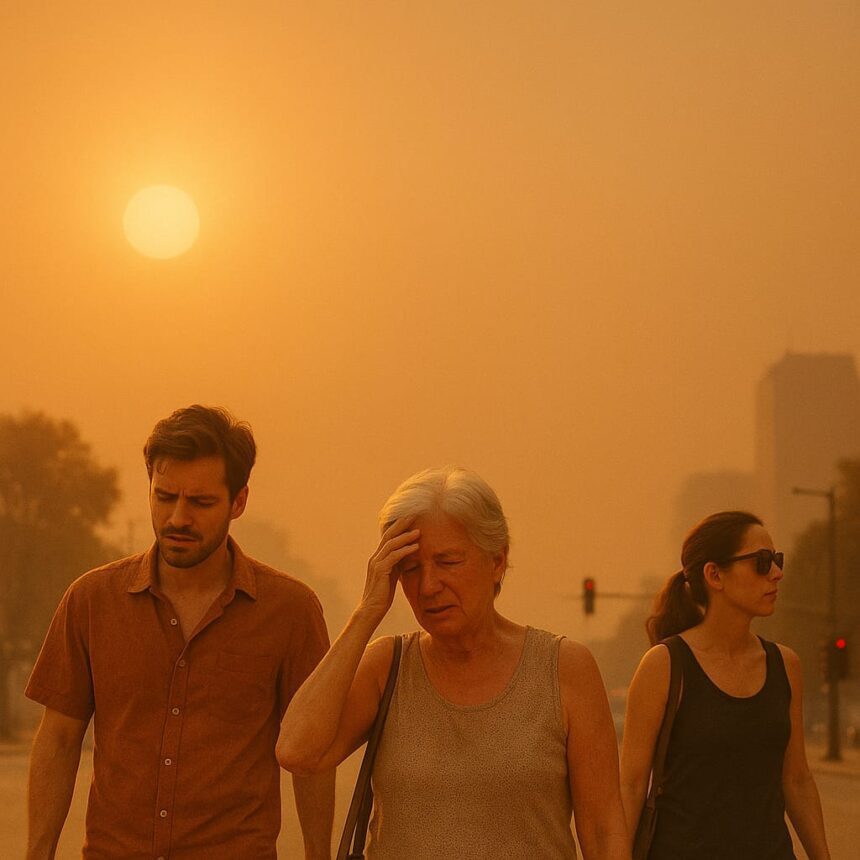A new global study has revealed that nearly half of the world’s population—around four billion people—endured an extra month of extreme heat over the past year, driven by human-induced climate change. The research, conducted by World Weather Attribution, Climate Central, and the Red Cross, underscores the escalating impact of rising temperatures fueled by continued fossil fuel use.
The analysis, which covered weather data from May 1, 2024, to May 1, 2025, defined extreme heat as temperatures hotter than 90% of those recorded at a given location between 1991 and 2020. During this period, 67 extreme heat events were identified globally.
The report warns that unless fossil fuel use is phased out, global temperatures will continue to climb, bringing more frequent and severe heatwaves. These heatwaves have already led to a surge in heat-related deaths and illnesses, devastated crops, and placed immense strain on energy and healthcare systems.
Despite the lethal toll of extreme heat, it often fails to capture headlines like floods or cyclones. “Heat is arguably the deadliest extreme weather event,” the report noted. Yet heat-related deaths are frequently underreported or misclassified. “Heatwaves are silent killers,” said Friederike Otto, a climate scientist at Imperial College London and co-author of the study. “People often die in hospitals or overheated homes, away from public view.”
The Caribbean region was particularly hard-hit, with the island of Aruba experiencing 187 days of extreme heat—142 days more than what would have occurred without climate change. Other severely affected areas included Central Asia in March, South Sudan in February, and the Mediterranean in July 2024, where temperatures reached a deadly 48°C (118°F) in Morocco, killing at least 21 people.
The burden of extreme heat is disproportionately felt by low-income communities and vulnerable groups, such as older adults and individuals with pre-existing health conditions.
Roop Singh of the Red Cross Red Crescent Climate Centre emphasized the urgent need for stronger heat response systems. “People are feeling the temperatures rise, but many aren’t connecting it to climate change,” Singh said. “We must rapidly expand early warning systems, develop effective heat action plans, and integrate long-term heat management into urban planning.”
In conclusion, the study reinforces a critical message: without swift action to reduce carbon emissions and transition away from fossil fuels, extreme heat will continue to worsen, affecting billions more in the years to come.














